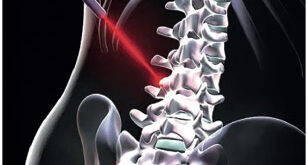By Dr. Mitchell Ghen
From my clinical experience, I see that people are confused when they hear the word hormone and are often without real understanding, even become afraid, mostly because of ignorance, about true nature, importance, and the many functions hormones have in our bodies.
Hormones are substances our bodies required in adequate amounts for life. They allow our hundred to two hundred trillion cells the capability to communicate with each other. Hormones are not about just for a certain period of our life but are required all the time. As you can imagine, the lack of a substance that allows our cells to talk to each other, if not available would create many health issues.
The studies available underscore our crucial need for healthy levels of these chemicals. Although when the word hormone is used, it is often thought of as only sex hormones, there are literally hundreds of these substances in our body. However, the sex hormones themselves – testosterone, estrogen, and progesterone are not just for good sexual activity. They play a major role in our overall health including heart, bone, muscle, and mental health.
Every cell of the human body has a receptor for testosterone, estrogen, and progesterone. For a moment just think about when you were in high school. Pretty much all of the classmates of yours were healthy, happy and had almost no health issues. At that time, all the sex hormones were the highest. During those years you were in what we call an anabolic state. The wear and tear on your body was much less than the repair. By the time we reach our early 40s and onward, we are in what we call a catabolic state. The wear and tear on our bodies is much greater than the repair. Therefore there is great reason for maintaining the healthy hormone state of our youth. Excuses like I don’t have sex anymore, I don’t have a mate, I’m old, or even the fear of cancer, are not good enough to preclude the safe repletion of these hormones.
A brief look at the literature will help us understand all this. The School of Medicine and Pharmacology, University of Western Australia, Perth, Western Australia, found that elderly men with the best testosterone levels live the longest. Another study found, that bio available testosterone is an independent predictor of height loss in elderly postmenopausal women. Also, American Academy of Neurology, recently wrote “Early Surgical Menopause Linked to Declines in Memory and Thinking Skills.” Researchers from the University of Edinburgh found low testosterone levels are linked to a resistance to insulin, the hormone that controls blood sugar level, and therefore low testosterone could be a factor in the development of Diabetes. One thing that becomes obvious is any already diagnosed diabetic, probably will develop if not present at the onset, low testosterone levels.
Also, new research from John Hopkins, that suggests that use of hormone therapy may affect women’s risk for developing Alzheimer’s disease: those who start it within five years of menopause may experience a lower risk, and those who start it later may experience a raised risk for the neurodegenerative disease. A neuropsychologist at the University of Rochester Medical Center stated that memory difficulties are one of the most common symptoms for women in their late 40s and early 50s, she said, a transition stage known as perimenopause Women develop symptoms such as hot flushes, night sweats, depression, irritability and loss of concentration.
In men, two observational studies have supported the hypothesis that lower testosterone may increase their risk of developing colorectal cancer. A new review, published in the Journal of Clinical Endocrinology & Metabolism (JCEM), of nine observational studies from 1970 to 2013, however, reveals that men with low testosterone may also have a higher risk of developing or dying from heart disease compared to men with higher level. Testosterone helps to maintain sex drive, strengthens bone and muscle. Low levels can trigger metabolic changes that lead to increased body fat and thinning muscles, as well as reduced sex drive.
Testosterone also affects our psychosocial behavior. A study determined that subjects who had received testosterone clearly lied less frequently than individuals who had only received a placebo.
Testosterone and estrogen are the major players in sex hormone family.
They both start out from cholesterol, one of the chief building blocks of the body. Cholesterol is converted into testosterone by in the testes, ovaries, and adrenal glands.
Testosterone can be converted into estrogen, but estrogen cannot be converted back into testosterone. When we put on weight and add fat to our bodies, more testosterone is converted to estrogen which can negatively affect our health.
People differ in their testosterone levels. The normal range for men is 300 -1,100 ng/dl. A man who was 1,100 at age twenty and drops to 300 by age fifty might have a number of uncomfortable symptoms. While a man who was 350 at age twenty and 300 by age fifty may experience no symptoms. Yet, both might test as having “normal” levels of Testosterone. We actually feel the best when our testosterone levels whether male or female, are similar to our levels as a teenager. Most men feel the best at T level of 800-1000 ng/dl.
Testosterone levels can shift up and down as required to meet life’s challenges.
Testosterone levels elevate when needed, for example, in men when they are competing for a mate. Women are high when they ovulate.
When people and other animals are high in testosterone, they focus on sex and dominance, but often then neglect other important aspects of their lives.
The results of a new speed-dating study suggest that when romantic sparks fly, so do testosterone levels, with mutual attraction giving rise to a hormonal spike in both men and women. A new study finds that a drop in testosterone levels over time is more likely to result from a man’s behavioral and health changes than by aging itself. The study results were presented at The Endocrine Society’s 94th Annual Meeting in Houston: “Declining testosterone levels are not an inevitable part of the aging process, as many people think,” said co-author Gary Wittert, MD, professor of medicine at the University of Adelaide in Adelaide, Australia. “Testosterone changes are largely explained by smoking behavior and changes in health status, particularly obesity and depression.”
So, have I convinced you yet that hormones are integral part of your life, for life? Well, the question you need to ask yourself is: do you want to feel like you did when you were most vibrant? It’s all about quality of life, and hormones play a most important role in your overall “Joie de Vive”. Stay tuned, next month we’ll talk about how to test and safely replace our dwindling hormones.
Dr. Mitchell Ghen
The Doctor’s Doctor
Consultant to Physicians Worldwide
561.508.3095
1983 PGA Blvd., Suite 103 Palm Beach Gardens, FL
(On PGA b/w US 1 and Ellison-Wilson)
info@drmitchghen.com • www.drmitchghen.com
facebook.com/drmitchcares
Check Also
Unlocking Inner Peace: The Revolutionary EXOMind Therapy at ThinWorks Offers a Drug-Free Path to Mental Wellness
In the serene setting of Palm Beach Gardens, a quiet revolution is unfolding in the …
 South Florida Health and Wellness Magazine Health and Wellness Articles
South Florida Health and Wellness Magazine Health and Wellness Articles




